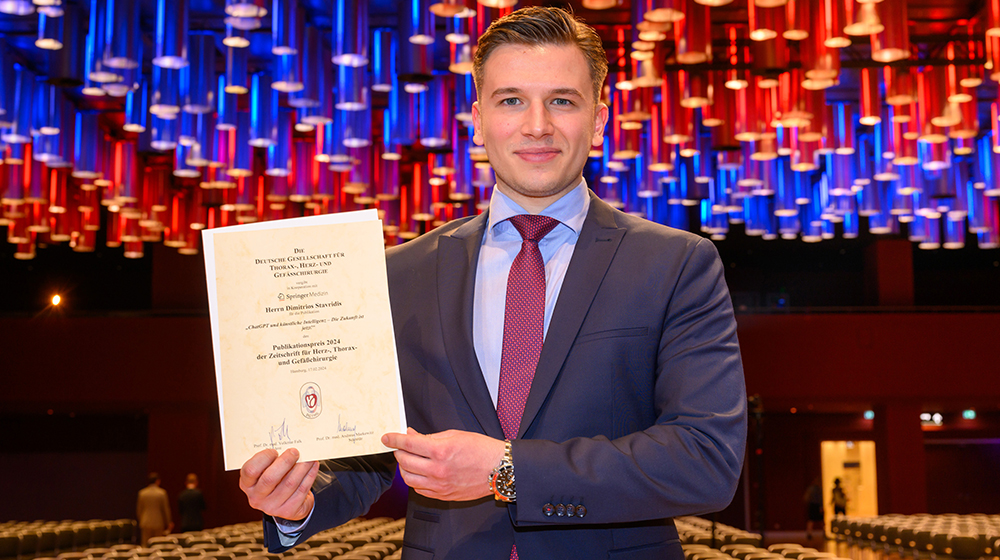Modern heart surgery plays an important role in the treatment of heart disease and helps to save the lives of many people. Successfully treating coronary heart disease and congenital or acquired heart defects - that is the dream of medical student Dimitrios Stavridis from the University of Magdeburg. "I always wanted to study medicine," says the 24-year-old. "I didn't have a plan B either and luckily it worked out well." Born in Greece, he came to Germany at the age of 18 and applied for a place to study here. "I could have studied medicine in Greece, but I decided in favour of Germany because of the very good standard of medical training." However, big cities like Berlin or Hamburg were out of the question for him, as individual support during his studies was very important to him. "Magdeburg is a beautiful city and you're not just seen as a number at the university. I have a very good relationship with the professors, lecturers and my fellow students," says Dimitrios Stavridis.
 Dimitrios Stavridis has received the publication prize of Springer Verlag for his article (Foto: privat)
Dimitrios Stavridis has received the publication prize of Springer Verlag for his article (Foto: privat)
As it is common practice in medical research to publish in scientific journals, the medical student recently focussed on the use of the AI tool ChatGPT in cardiothoracic surgery. In his article "ChatGPT and artificial intelligence - the future is now!", he provides suggestions and recommendations on how the tool could be used in everyday clinical and academic practice, for example in the documentation or creation of doctors' letters. The text was not only published in the specialist journal for cardiothoracic and vascular surgery, but also won a publication prize from Springer Verlag. Dimitrios Stavridis already has an idea of what he would like to do with the 2,500 euros in prize money: "My great passion is minimally invasive cardiac surgery. Unfortunately, the instruments for this are very expensive, so I've been thinking about using the prize money to buy instruments so that I can practise after my working day. That would really help me in my work as a trainee heart surgeon."
The next step in getting a little closer to his dream is to successfully complete his doctoral thesis. "My goal is to defend my doctorate and get my PhD. I'm researching how a Covid 19 infection affects patients with heart disease and why they have an increased risk of developing the disease," says the young scientist, who is currently receiving a doctoral scholarship, financial support for doctoral students from the University of Magdeburg. The doctoral scholarship is intended to support excellent young scientists in completing their doctoral thesis without financial pressure. Medical students can apply for the scholarship twice a year. "I am very grateful that the University of Magdeburg and my faculty give me the opportunity to carry out research as a student and provide support and encouragement. We have very competent scientists and can definitely keep up with other research institutions both in Germany and worldwide," he concludes.
